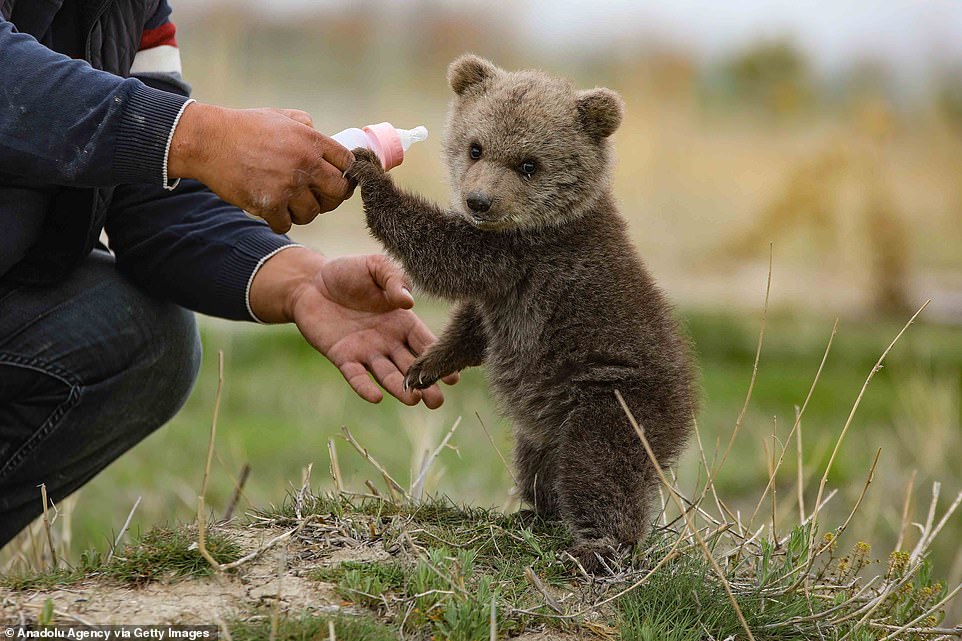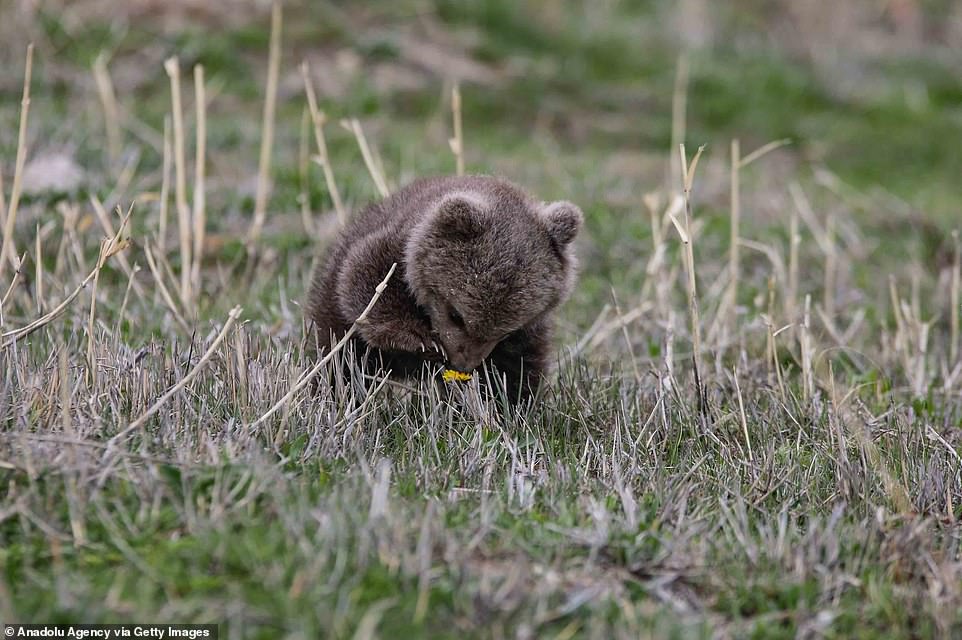A Turkish rescue center in Hakkari, which is a close region on the Turkish border with Iraq, came upon an adorable bear cub who had become separated from its mother and was wandering aimlessly in the woods.
After being rescued, the young bear cub, whose name is Hakvan, can be seen in the picture drinking from a milk bottle. After his solo expedition, he is shown in photos being nursed back to health by others.
Bear cub was sent to Van for treatment after being separated from its mother in Hakkari by Turkish rescue officials. Hakvan was fed every three hours and was kept under monitoring the entire time.
The head of the center, Professor Lokman Aslan, stated to the reporters that the facility handles dozens of injured animals that are brought in each year, although bears are not commonly seen in this region of Turkey.
“(Hakvan) is doing well at this time. According to The Frontier Post, the man who found the baby bear said that he was fed and released back to the location where he had lost his mother but that he was unable to find her. Therefore, we brought him here. This area provides him with an environment that is nearly identical to that of his natural habitat.
In recent times, however, there have been sightings of a greater number of bears in the vicinity of the region. Aslan mentioned that they had just recently provided medical care for two adult bears who had been injured.
On April 20, an employee at a rehabilitation facility in Van, Turkey took a picture of the little bear cub known as “Hakvan” as he drank milk from a bottle during feeding time.

Taking a moment to catch our breath, the young bear cub, which was taken away from its mother in Hakkari and transported to Van for medical care, is fed every three hours and is kept under the continuous surveillance of vets at all times.

The bear is quite intent on consuming all of the milk. They discovered the young animal in the province of Hakkari, which is located close by and shares a border with Iraq. There is a low probability of seeing a bear in that region of the planet.

The head of the center, Professor Lokman Aslan, told reporters that the facility handles dozens of injured animals that are brought in every year, but it is rare for them to see bears among the patients.

In recent times, however, there have been sightings of a greater number of bears in the vicinity of the region. Aslan mentioned that they had just recently provided medical care for two adult bears who had been injured.

The cub bear’s name is Hakvan. The name Hakvan is a combination of the Turkish term for animal, Hakkari, and the name of the location where the young bear was discovered, Hayvan.

It was uncertain whether or not Hakvan would be able to survive on his own without his mother, so the rescue personnel wanted to remove him away from the woods as soon as possible.

‘(Hakvan) is fine now. He was fed and released back to the spot where he lost his mother but he could not locate her,’ said Aslan. ‘So, we took him here. He has the perfect habitat here similar to his natural habitat’

‘We will apply a special rehabilitation process for him but he will be a longtime guest here,’ Aslan said. It is not clear at what point the rescue centre will attempt to reintroduce Harkvan back into the wild

Authorities sometimes have difficulty rehabilitating animals into the wild after they have spent too much time in human company. Bears are very social, and while they do not live in extended family groups or join in hunts, they can co-exist in very close proximity to each other

Rehabilitating bears can be especially challenging if they have spent a significant time away from other bears. Bears are social creatures, forming hierarchies and have structured kinship relationships. Bears are able to routinely distinguish between threatening and non-threatening human behaviour

Cubs, as well as older bears, engage in social play and have ritualistic mechanisms to meet strangers and decide if they are friendly or not, but such behaviours are learned through interaction with the mother bear or other bears around them



GIPHY App Key not set. Please check settings